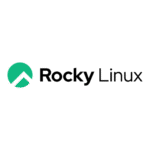Security Enhanced Linux (SELinux) is a powerful security architecture for Linux systems, designed to provide enhanced access control and support for user and application isolation. Several prominent software brands have integrated SELinux into their offerings, allowing organizations to develop secure and compliant applications while leveraging the robust capabilities of this framework.
Red Hat, a leader in open-source software solutions, deeply incorporates SELinux within its Red Hat Enterprise Linux (RHEL) distribution. This ensures that enterprises benefit from stringent security protocols right out of the box while maintaining system performance and usability.
Another significant player is Fedora, which serves as a community-driven platform where SELinux plays a vital role in protecting users’ data. Fedora regularly updates its features to enhance security, making it a popular choice for developers seeking cutting-edge tools.
Additionally, CentOS, now part of the Red Hat ecosystem, emphasizes stability and security, making SELinux integral for sysadmins looking to manage secure environments efficiently. Together, these brands exemplify the integration of the Security Enhanced Linux Logo as a hallmark of reliability and safety in the software industry.









